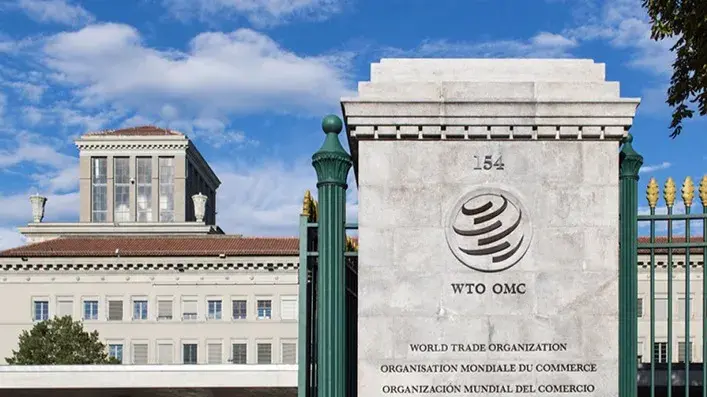Advertisement
Updated February 7th 2024, 18:08 IST
Government to challenge EU's carbon tax proposal at WTO meet
Joining forces with South Africa, New Delhi intends to raise its objections against the EU's unilateral measure during the WTO's Ministerial Conference.

The government is gearing up to contest the European Union's proposed carbon tax on imports of steel, iron ore, and cement at the upcoming World Trade Organization (WTO) meeting scheduled for later this month, sources told news agency Reuters. The government argues that the proposed tax would serve as a new trade barrier.
Joining forces with South Africa and other like-minded nations, New Delhi intends to raise its objections against the EU's unilateral measure during the WTO's Ministerial Conference (MC13) in Abu Dhabi from February 26 to 29. Senior government officials stressed that any measures taken to combat climate change should not result in arbitrary discrimination or restrictions on global trade.
Previously, the government had planned over filing a complaint with the WTO regarding the EU's proposal to impose tariffs ranging from 20 per cent to 35 per cent on high-carbon goods such as steel, iron ore, and cement. The issue has also been raised in bilateral discussions with EU officials.
The EU, however, contends that its Carbon Border Adjustment Mechanism (CBAM) complies with WTO rules by applying the same carbon price to imported goods as domestic EU producers. Despite this assertion, countries including India and China have expressed concerns within the WTO regarding the potential impact of the EU's carbon tax, aimed at preventing European industries from facing unfair competition due to cheaper imports from countries with lax environmental regulations.
Highlighting the universal nature of climate change, one official underscored the importance of addressing the issue without imposing arbitrary trade barriers.
While the commerce ministry, responsible for India's negotiations at the WTO, declined to comment, the official stressed that developed nations have fallen short of their agreed annual target of mobilizing $100 billion by 2020 for climate action in developing countries.
Additionally, New Delhi has voiced opposition to EU regulations prohibiting the import of products linked to deforestation in their country of origin, a move expected to impact billions of dollars worth of exports from India.
Both officials requested anonymity in line with the government's policy on discussions at international forums.
(With Reuters inputs)
Published February 7th 2024, 18:08 IST
